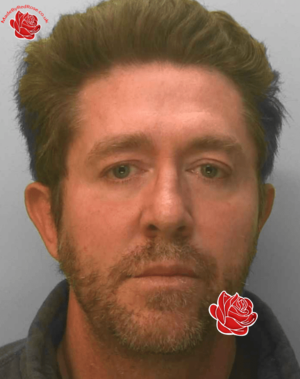Sean Armstrong's Social Media Accounts
Know a Social Media Account Linked to Sean Armstrong?
Want to add information? Log in to your account to contribute accounts and phone numbers.
SEAN ARMSTRONG OF BARNHAM SENTENCED FOR HORRIFIC CHILD SEXUAL ABUSE IN YEOVIL AND CHICHESTER
In a case that has shocked the local communities of Barnham and Yeovil, Sean Armstrong, aged 48, was convicted of heinous crimes involving the sexual abuse of young children. The offences, which spanned several years, came to light after Armstrong was arrested in December of the previous year, revealing a disturbing pattern of predatory behavior that left lasting scars on his victims and their families.Armstrong, of Market Close in Barnham, was sentenced to a lengthy 16-year prison term at Chichester Crown Court on a Friday. The court heard that he had previously pleaded guilty to 12 counts of child abuse, including the rape of a child, sexual assault, engaging a child in sexual activity, and the production of indecent images of a minor. Judge Christopher Parker QC described Armstrong’s actions as “wicked and depraved,” emphasizing the profound trauma inflicted upon the victims and their families.
During the sentencing, Judge Parker highlighted the severity of the crimes, stating, “You have carried out some wicked and depraved activities and you assaulted such small helpless victims in a way that is impossible for any normal person to understand. You have caused an impossible trauma to the parents. You carried out appalling cases of sexual abuse on a tiny child.” The judge also ordered a life-long sexual prevention order and indicated that some of the sentences would be subject to an extended licence period, underscoring the gravity of Armstrong’s offenses.
The criminal activities reportedly took place between September 2007 and June 2009, with the abuse only coming to light after Armstrong’s arrest in December of the previous year for separate offences against another child. The prosecution, led by Mr. Gardiner, presented victim impact statements that conveyed the devastating emotional and psychological toll on the victims and their families. Although these statements were not read aloud in open court, they underscored the profound and lasting damage caused by Armstrong’s actions.
Armstrong’s defense, represented by Miss Shields, portrayed him as a man of previously good character who was overwhelmed by guilt. She expressed remorse on his behalf, stating, “He is also wishing to apologise through me to the families of these children for the appalling wrong that he has done them. He does accept these crimes are sickening and deeply concerning and will have inevitably left deep scars on the victims.” Miss Shields further noted that Armstrong had broken down and was unable to provide any explanation for his conduct, indicating a profound remorse and acknowledgment of his guilt.
Meanwhile, the impact of Armstrong’s crimes extended beyond the courtroom. The case has brought to light the ongoing struggles faced by victims and their families in securing adequate psychological support. In a related and deeply troubling aspect of this case, a six-year-old boy from Yeovil, who was abused during a period of several months while his family resided in West Sussex, has yet to receive the necessary mental health assistance. The boy’s mother, who cannot be named to protect her child's identity, has expressed her desperation in seeking urgent psychological help for her son.
She revealed that despite her efforts, social services and mental health providers have been unresponsive or unable to assist due to the child's age. She recounted her frustration, saying, “I have been told by social services that there is ‘no need’ for their involvement. I went to my GP but they said they can’t give a referral because my son is too young. His behavior has spiraled out of control. He wants to hurt people. He kicks and punches me and my partner. He has a three-year-old brother, and he has started touching him inappropriately. When I tell him not to, he responds, ‘I had it done to me so why can’t I do it to him?’”
The mother expressed her deep concern that her son might grow up to repeat the cycle of abuse he experienced. She emphasized the urgent need for one-on-one psychological counseling, which she believes is essential for his recovery. Despite her persistent efforts, including engaging with schools and support workers, she reports that the child has not yet received the specialized help he desperately needs. She explained, “The support worker has been in touch with several services, including the Child and Adolescent Mental Health Services (CAMHS), but they said they could not do anything unless we could prove he has a mental health issue. I have no idea how we would do that. Social services said they are looking into funding for individual help but say they have more urgent cases.”
Her son’s behavior has changed dramatically since the abuse, with the mother noting a significant shift from his previous typical childhood activities. She described how he used to be playful and normal but now exhibits troubling behaviors, including lying about mistreatment and acting out violently. She recounted a recent incident where her son falsely claimed that his stepfather had abandoned him outside all night, prompting a social care referral and a subsequent investigation. Although social services found no risk from her or her partner, they promised to stay involved to help secure appropriate support. However, subsequent meetings have yet to result in concrete assistance, leaving the mother feeling helpless and desperate for her child's well-being.
This case underscores the ongoing challenges faced by victims of child abuse and their families in accessing mental health services, especially for young children. The community continues to grapple with the repercussions of Armstrong’s depraved actions, which have left indelible scars on multiple lives. The legal proceedings and the ongoing efforts to secure psychological support highlight the critical need for improved systems to protect and assist vulnerable children in the aftermath of such traumatic experiences.


